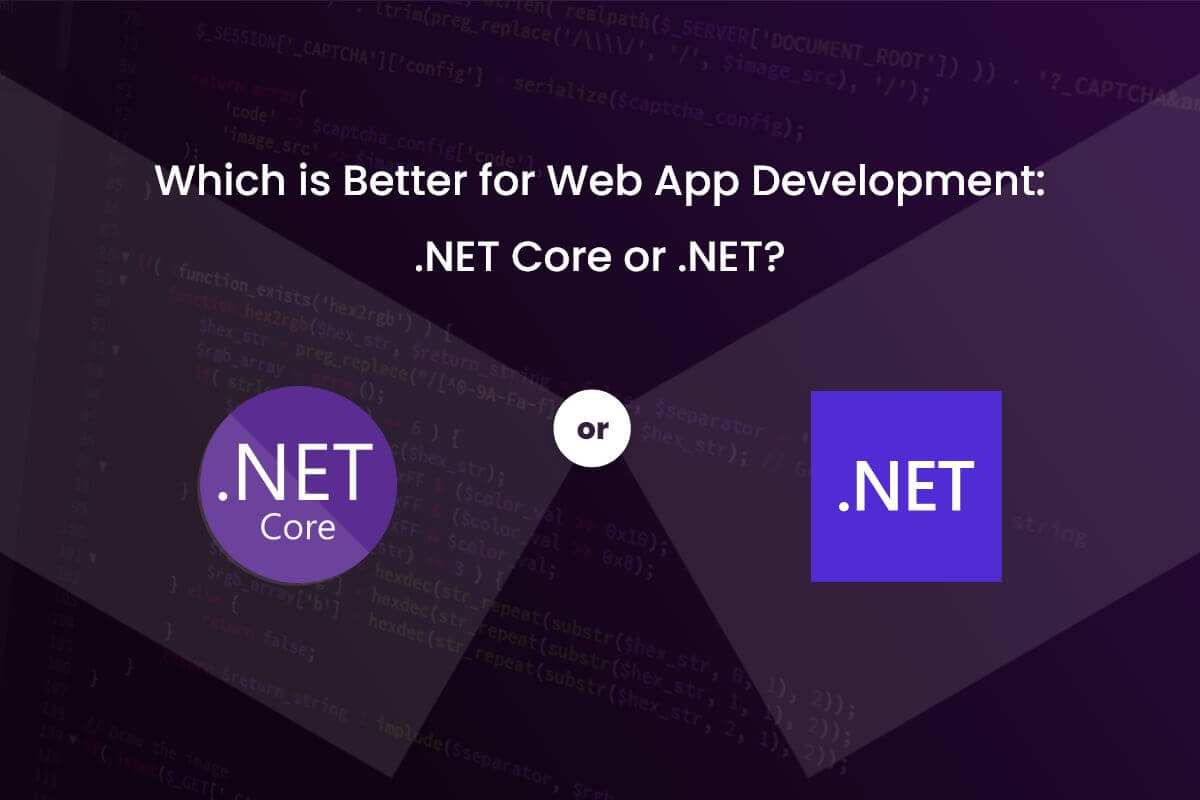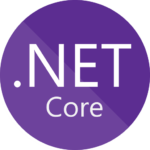
When it comes to .NET Core VS .NET Framework, developers often find it difficult to decide which runtime service they should use for software application development. Built by Microsoft, .NET runtime is a software development platform used to develop server-side applications. .NET is an umbrella under which there are two major divisions, .NET Core and .NET Framework. StackOverflow in 2020 concluded that .NET Core and .NET Framework are the two most used platforms for the development of business applications. This might confuse you about which one to choose. Keep reading to find a suitable option for your software.
History and Introduction
- .NET Core: .NET Core is the latest version of the .NET Framework and it enables the development of cross-platform applications. The first version of this platform was introduced in 2016. This version successfully eliminates all barriers that come along with the development of applications using the .NET Framework.
A few features of .NET Core include various APIs, high-performance web apps, microservices, components, etc. You hire a .NET developer to build almost any type of mobile application using .NET Core, and some major ones being gaming, web, mobile, cloud, desktop, AI, and many more.
- .NET Framework: Microsoft brought .NET Framework as an open-source platform that has the support of several languages. Its first version was first released in 2002 and was called .NET Framework 1.0. Today, software developers are using .NET Framework 4.8, with various enhanced functionalities.
Common Language Runtime (CLR) and Extensive Class Library are the two primary components of the .NET Framework. One of the significant advantages of using the framework is that you can use any language to develop an application.
Hire .NET Developer to get a robust, high-performing application developed using the .NET platform.
What is the Difference Between .NET Core & .NET Framework?
You must be thinking .NET Core is the successor of the .NET Framework, and hence, both must be the same. This is not the case, though. There are some significant differences between .NET Core and .NET Framework. We have listed a few of them below;
OS
Being a cross-platform framework, .NET Core works seamlessly on Linux, macOS and Windows as well. That said, develop an application using this platform and it works on any of the systems. On the contrary, .NET Framework is compatible only with Windows, and cannot withstand Xamarin, Silverlight, and Mono.
Application Types
While using .NET Core, developers face a major drawback — the platform cannot be used for the development of desktop applications. It can be used to develop cloud-based and server-side applications primarily. Comparing it with .NET Framework, the applications developed using this platform can be used on the web and desktop.
Installation
.NET Framework has everything required for the development of Windows applications. On the contrary, the .NET Core platform employs modules. That said, it has only the essential components used for the software development process. The software developers will then have to choose the modules required.
Microservices Support
Microservices enable splitting larger applications into smaller components. .NET Framework supports REST API but doesn’t have support for Microservices. On the other hand, .NET Core is compatible with both. This way, a developer can work on one component without affecting the entire ecosystem.
Also Read our Related Post on .NET Developer for Hire
.NET Framework Advantages

- .NET Framework doesn’t have a steep learning curve, so developers can learn using the platform and develop an application faster.
- The job market for the .NET Framework framework is highly volatile, and you will not find many opportunities after learning .NET Core.
- .NET Framework is an ideal choice for the maintenance and up-gradation of apps developed using .NET.
- The latest version of the .NET Framework is 4.8, and it is supposed to be the last version. The software developers will not have to spend time learning the future updates.
.NET Core Advantages

- The .NET Core 3.0 supports Windows Forms and WPF. It supports cross-development as well, between WPF, UWP, and Windows forms.
- While building a new application from scratch, .NET Core is the choice of the developers.
- .NET Core suits cross-platform apps better. Apps developed using this platform are supported on Linux, Windows, and macOS.
- Future updates in .NET Core will only make it better; hence it is an ideal choice.
- .NET Core supports Microservices architecture. It enables cross-platform services to work with .NET Core, including the development services that uses Java, .NET Framework, Ruby, and others.
Comparison
When differentiating .NET Core vs. .NET, As a system, .NET Core is not part of the OS and is installed differently. NuGet packages compose .NET Core and are either compiled into an application or placed into a folder. Its release enhanced flexibility to the businesses in terms of expanding the infrastructure and adding resources to the servers. No other platform in the web app development market provides greater portability and flexibility as .NET Core.
Additionally, .NET is also a cost-effective solution as compared to .NET Framework. More IDE options are offered and several other tools available make the software development using this technology quickly. The software developers also get multiple options for hosting .NET Core apps; they can easily switch to Linux or other providers and have unlimited database storage options.
That said, .NET Core is no doubt an ideal choice while seeking .NET Development Services.
When to Choose .NET Core Vs .NET
The choice of platform depends significantly on the software project. Let’s find out a few scenarios that are the best for either of the platforms.
.NET Core
- When the app requires cross-platform compatibility.
- The application needs scalability and higher performance.
- Requires the advantages of command-line interface control.
- The app needs docker containers or microservices.
.NET Framework
- You want an application that runs on only Windows.
- The apps employ technologies not available in the .NET core, such as ASP.NET web form applications.
- The app requires window services.
- The app deploys on a cloud service that doesn’t support .NET Core. For instance, Azure App Development Services.
When Not to Choose .NET Core vs .NET
.NET Core
- Your application needs the use of WPF applications or Windows Forms.
- When the creation of WCF service is required.
- Access to Windows API is required.
- When the use of WebForms is required.
.NET Framework
- When you want to develop an app intended to be used cross-platform.
- You are looking for open-source technology.
- If you have plans to scale your app in the future and are hence looking for high-performance from the development platform.
- You want to experiment and try new things.
Future of .NET Core and .NET

.NET 5 was released in November 2020 and was announced by Microsoft. The future of .NET is .NET 5, and the new version will replace both .NET Core and .NET Framework. However, the new release is not intended to support ASP.NET web forms, WWF, or WCF. In the future, UWP will also not play a major role.
Final Words
.NET is an appealing technology that played a major role in shaping the tech world. If you want to develop an alluring, user-friendly, high-performing web or mobile app then .NET development services is the best choice. However, to keep up with the ever-changing technology, updates were made on the platforms. That said, all you need to do is to hire an experienced and professional .NET developer from a leading .NET development company to obtain the best possible results. This will also help you get best-in-class solutions for all your development needs.
Frequently Asked Questions
Yes, .NET Core outperforms .NET Framework because the .NET Framework only allows developers to create apps for the Windows platform, whereas .NET Core allows developers to create apps for Mac, Linux, and Windows. You can compile and access applications created in the .NET Framework written in one language into another.
.NET Core is substantially faster since the entire underlying architecture of .NET core has been redesigned to be smaller and more performant.
No, .NET Core is not going to extinct. The future of .NET is .NET Core.
Yes, as obviously suggests that .NET is no longer relevant and that .NET Core is the way forward. Existing apps that want to use the new .NET capabilities should consider migrating to .NET Core.
In 2022, there are several compelling reasons to learn ASP.NET. We’ve compiled a list of some of the strongest arguments for doing so below.
– Create cutting-edge web apps and services
– Deployment is simple
– Create single-page apps
– .NET may be accessed using your web browser
Social Hashtags:
#dotnet #dotnetcore #dotnetadvantages #dotnetcoreadvantages #dotnethistory #dotnetcoreintroduction #dotnetcorevsdotnet #whentousedotnet #whentousedotnetcore #dotnetdeveloperforhire #dotnetframework
.NET Core VS .NET: INFOGRAPHIC

Testimonials: Hear It Straight From Our Customers
Our development processes delivers dynamic solutions to tackle business challenges, optimize costs, and drive digital transformation. Expert-backed solutions enhance client retention and online presence, with proven success stories highlighting real-world problem-solving through innovative applications. Our esteemed clients just experienced it.









